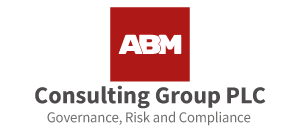Overview of Compliance Audits:
Consequently, compliance audits are business operation essentials that ensure conformity with ethical as well as legal practices. In current times, businesses have to follow many laws, regulations, and industry standards in a complex and dynamic regulatory environment. Regulatory compliance audits are essential to make sure that these norms are followed by companies and that they maintain their integrity. In this article you will get the following information like, what is meant by Regulatory compliance; why they matter to businesses; the benefits of conducting them; types of Regulatory compliance audits that exist; their role in risk management; the legal consequences of non-compliance; how to prepare for a compliance audit; conducting a compliance audit; common findings from compliance audits and how to address them, their impacts on business operations and best practices for conducting such audits.
Key Takeaways:
· Compliance audits guarantee that organizations comply with laws and regulations.
· They show areas of non-compliance and possible risks.
· Conducting a compliant audit can improve business operations while minimizing legal liabilities.
· The various kinds of Compliance Audits include Financial Audits, Operational Audits, and IT Audit.
· When preparing for a Compliance audit report over all details thoroughly.
The Importance of Compliance Audits for Businesses
What is known as a compliance audit is the logical inspection done by either internal or external auditors to determine whether an organization has been adhering to relevant legislation, regulations, and industry standards. Their objective here is to examine how well an organization’s internal controls and procedures ensure compliance. Regulatory compliance audits allow an impartial assessment of adherence to a company’s legal and ethical responsibilities by reviewing policies, practices, and processes.
Why are compliance audits important for businesses?
Compliance audits are important for businesses because they ensure that businesses operate within legal and ethical standards. Compliance audits can be useful because companies can identify any gaps or weaknesses in their processes and improve them quickly. Moreover, non-compliance financial consequences, and legal implications may be avoided if companies undergo such assessments. At a time when unscrupulous conduct as well as corporate scandals can permanently destroy a company’s reputation, compliance audits show stakeholders that a company is committed to ethically conducting its business.
The Advantages of Compliance Audits:
Companies can benefit greatly from conducting compliance audits. The first benefit is that it helps a business identify potential compliance areas. By taking proper steps to address these issues, companies can avoid potential financial penalties and legal action. Both company performance and reputation can be enhanced by compliance audits.
| Metrics | Importance |
| Legal Compliance | Prevents legal penalties and fines for non-compliance with regulations and laws. |
| Reputation | Protects the reputation of the business by ensuring ethical and responsible practices. |
| Financial Stability | Ensures financial stability by preventing financial losses due to non-compliance. |
| Operational Efficiency | Improves operational efficiency by identifying areas of non-compliance and implementing corrective actions. |
| Risk Management | Reduces business risks by identifying potential compliance issues and implementing preventive measures. |
Businesses can improve internal controls, speed up processes, and guarantee consistent ethical and legal adherence by finding and closing non-compliance gaps. As a result, this can lead to increased trust, brand awareness, & competitiveness within the industry.
Kinds of Compliance Audits:
Different businesses have different demands for compliance audits. Some may require an assurance of industry-specific regulations, while others might strive to comply with government laws. Compliance audits can be done also to make sure that the company follows ethical standards or internal policies and procedures. The audit scope will vary depending on the specific needs of the business. As such, it may focus on accounting records, data privacy, or environmental issues such as pollution. Mainly, the important objective of a Regulatory compliance audit is to identify potential areas where business operations are not fulfilling the financial or profitable gain and to provide valuable recommendations aimed at improving the situation. Consistent compliance companies can therefore be socially responsible and ethical in their operations thereby reducing the chances of legal action or financial loss.
An organization’s data security policies and information systems are evaluated through IT compliance audits. Environmental compliance audits look at how well the company adheres to sustainability guidelines & environmental standards. Businesses should select the appropriate type of compliance assessment based on their operations, industry, and regulatory needs. Audits for IT conformity, operational conformity, financial conformity, and environmental conformity are some common types. Financial compliance audits mainly aim at ensuring adherence to accounting principles and accuracy in financial reporting. Meanwhile, Operational compliance is about following particular industry rules and how a business carries out its operations.
Compliance Audits’ Significance in Risk Management for Businesses
Compliance auditing is important for risk management. Organizations can become aware of non-compliance risks and put into effect appropriate mitigation measures through ordinary compliance audits. Compliance audits assist businesses in identifying weaknesses in internal rules and approaches. By quickly overcoming these gaps, companies can reduce the chances of compliance issues. By integrating compliance audits into a master risk management strategy, companies can ensure risks are properly identified & addressed as they arise.
The Legal Consequences of Non-Compliance:
When businesses violate legal guidelines, policies, and enterprise standards, there may be extreme prison consequences. Companies can be fined, fined, prosecuted, or even criminally charged, depending on the mode of commercial enterprise. Significant financial loss, damage to one’s reputation, decreased customer confidence, & even the closure of the company are possible consequences of these types of legal consequences. By identifying and addressing compliance problems early, compliance audits help companies avoid these legal problems.
How to Get Ready for a Compliance Audit:
To make certain that the method runs smoothly, you want to get geared up for a compliance audit. To assure compliance with pertinent legal guidelines and regulations, agencies must start by installing region-sturdy compliance software that specifies policies, approaches, and controls. Any adjustments to the regulatory environment have to be contemplated on this application’s periodic critiques and updates. The appointment of a compliance officer or team to manipulate compliance initiatives and get equipped for audits is likewise essential. To find and close any compliance gaps before an external audit is performed, this team must periodically perform inner audits.
To ensure that companies are meeting all essential policies and requirements, it’s miles vital to have a comprehensive compliance application in the region. This program must consist of ordinary inner audits to perceive any regions of non-compliance and cope with them before an external audit takes place. By doing so, organizations can keep away from high-priced fines and consequences, in addition to harm to their popularity. Additionally, having robust compliance software can assist in building acceptance as true with clients and stakeholders, demonstrating a dedication to moral and accountable business practices. Overall, investing in radical compliance software and inner audits can assist agencies in advance of the curve and maintain a competitive facet in their industry.
The Process of Compliance Audits:
Typically, the regulatory compliance audit finding process consists of multiple stages. The auditor will be conducting an initial entrance meeting that will enable him to go over the objectives, objectives, and timeline of the audit. A synopsis of the supportive documents is then discussed; these documents include contracts, policies, procedures, and any other documents. Further, the auditor will ask an important group of people who are involved in the compliance process to fill the gap in its better understanding. The auditor will create a report afterward after he/she has analyzed the information and gathered all the valid data. If the auditors inspect and detect any regulatory discrepancies amid the audit, these should be noted in the audit report directly.
The findings of the report will come up with suggestions on how to tackle and ultimately solve the problems that will be discussed as well. This report will be presented to the management of this company as well as during the meeting the manager can respond to the suggestive underlying findings and recommendations with the shareholder. This review provides the next step in keeping the Board up to date with the achievement of regulatory standards and to make sure that corrective measures to be followed when something is not observed correctly are taken under the regulations. Eventually, ensuring that the activities of the company fully comply with all these requirements and are continuous and improved with no interruptions is the aim of the audit.
Common Compliance Audit Findings:
Auditors often notice frequent findings during the scope of compliance audits which direct compliance. The outcomes include those that relate to insufficient documentation for processes and controls in place, ineffective employee compliance training process, improper risk management activities, including inadequate monitoring of the same, and less adequate audit findings response.
Enterprises are now compelled to take up immediate measures to rectify, if not resolve, the findings and issues that crop up as whoever failed to comply with the relevant norms and standards could be found wanting once there is an audit. If this is not attended to, then the company may face various hardships, including the institution of court-imposed fines, legal action, and loss of reputation. It is thus crucial that businesses undertake the tasks of identifying the issues, quickly and effectively putting the measures to correct the issues and prevent the same from happening in the future. There might be a need to revisit and modify the existing policies and processes, make additional training as well as provide staff support, or invest in new technologies and systems. In this way, companies can establish peace of mind that they conform to legalities and that they will receive fair treatment from all stakeholders regarding the business.
The Effect of Compliance Audits on Business Operations:
For a business to be directly impacted in the manner of its operations by the implementation of compliance audits. Organizations incorporating appropriate internal control structures, optimized workflows, and general productivity can do this by finding out and fixing any existing non-compliance areas. Companies and business organizations can also use compliance audits as an opportunity to review their way of performing things and put into effect the best ways of doing things. The top benefits of implementing this include customer satisfaction improvement, lower operational risks as well as high productivity. As a whole, audits can perform the serious intent to help companies create a compliance culture in which employees are allowed to follow legal and moral rules and have ideas of their responsibilities.
Best Practices for Compliance Auditing:
Compliance accounting is a critical and risk management essential pillar of organizations. Laws and regulations keep organizations within the legal bounds. They enforce the appliance of industry standards. In terms of performing compliance audits in the sense of best practices, an organization is advised on several things. They encompass setting well-defined audit goals, preparing a detailed audit plan, selecting appropriate audit methods, and ensuring that the auditors are competent and aware in performing their audit roles. During this audit stage, it is crucial to ensure that there is a transparent communication sheet with the stakeholders when needed and all findings and recommendations should be recorded. Educating employees, implementing appropriate control mechanisms, conducting ongoing assessments, and maintaining open lines of communication are the best practices that will help organizations raise their compliance standards even more. This will reduce the level of risk of non-compliance and will protect the assets and reputation of these organizations.
Initially, we need a full procedure that involves standards, guidelines, and control systems which are needed for compliance. An audit of these regulations should be carried out and reviewed at certain intervals to match the changes we are introducing in the policy Periodic verification as to whether the policies and procedures are followed is required for compliance to be assumed regularly. Notably is the ability of internal audit to detect & immediately resolve areas of compliance inadequacies.
Furthermore, it is advisable to have external auditors as part of the standard procedure to have them carry out unbiased evaluations of the cybersecurity compliance process. The main goal of companies is to have processes and controls in place to underpin compliance which should also be constantly enhanced with the new measures and lessons learnt from the auditing results.
Conclusion:
They are crucial to risk management because they can detect, and help firms mitigate the risk, having successfully eliminated the problem. To audit is to benefit the organization with improvements in terms of operation, the legitimacy of the organization’s reputation, and the avoidance of fines, legal problems, and other engagements. The audit of compliance could present a performance-improving measure for companies perhaps. Businesses must pay continual attention to compliance monitoring & improvement and add compliance audits as a tool to minimize the risks in their risk management plan.
FAQs for Compliance Audit:
What do you mean by “a compliance audit”?
A compliance audit is an exercise involving the inspection of the details of companies’ operations and processes to find out whether they are following the legal and regulatory rules and guidelines.
What is the need for Regulatory compliance audits by a company?
Regulatory compliance audits are important for business entities because they provide an opportunity for an enterprise to identify where it may be at risk of non-compliance with laws and regulations. This will, in turn, assist in the deferment of legal, and financial repercussions and reputation loss.
What are common areas where a compliance audit team focuses their attention?
Regular areas that it will bring into focus during a compliance audit include compliance with financial reporting, data privacy and security, employment practices, environmental regulations, and health and safety regulations.
Who do the compliance auditors work for; neither the executioner, nor the individual being sanctioned, but rather the society?
It is the compliance audits that are done by internal auditors and by external auditors who are compliance specialists most of the time.
What are the advantages of performing such checks on a regular interval?
Conducting regular compliance audits is beneficial in multiple ways which include, among other things, the ability to detect and treat compliance problems before they escalate into crises, affecting process efficiency, and one of the highest visibility ways to demonstrate ethical business practices.
What are some potential detrimental factors for non-conformance?
There might be undesirable outcomes such as legal and financial penalties, social and economic embarrassment, failure of business deals, and lessening of job satisfaction as well.


